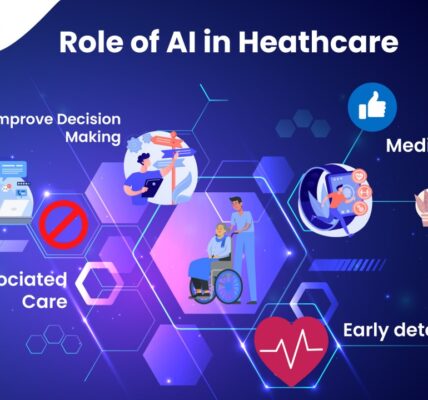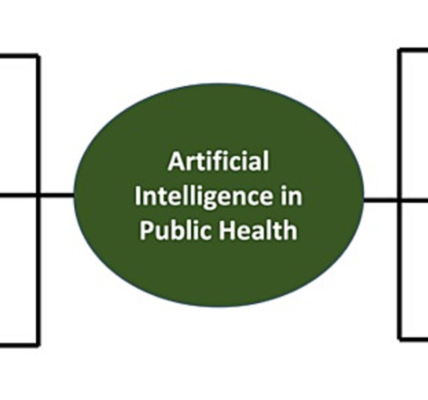Artificial Intelligence (AI) is revolutionizing various sectors, and healthcare is no exception. One of the most promising applications of AI in healthcare is in predicting health behaviors. Understanding and anticipating health behaviors can significantly impact patient outcomes, disease prevention, and overall public health. By leveraging AI, healthcare providers can gain insights into patient behaviors, tailor interventions, and promote healthier lifestyles. This article explores the role of AI in health behavior prediction, its applications, benefits, challenges, and future potential.
Understanding Health Behavior Prediction
Health behavior prediction involves forecasting how individuals will behave in relation to their health. This can include predicting adherence to medication, likelihood of developing chronic conditions, or changes in lifestyle habits such as diet and exercise. AI contributes to this field by analyzing vast amounts of data to identify patterns and predict future behaviors.
Machine learning algorithms, a subset of AI, play a crucial role in health behavior prediction. These algorithms can process and analyze diverse datasets, including electronic health records (EHRs), genetic information, social media activity, and wearable device data. By identifying patterns in this data, AI systems can provide insights into how individual behaviors and environmental factors influence health outcomes.
Applications of AI in Health Behavior Prediction
AI’s applications in health behavior prediction are broad and impactful. One prominent application is in predicting medication adherence. Non-adherence to prescribed treatments is a significant challenge in healthcare, often leading to poor health outcomes and increased healthcare costs. AI systems can analyze patient data, including previous adherence patterns, medication history, and even social determinants of health, to predict the likelihood of a patient adhering to their medication regimen. This allows healthcare providers to intervene proactively, offering support or adjusting treatment plans to improve adherence.
Another application is in predicting the risk of developing chronic conditions. AI can analyze data from various sources, such as family history, lifestyle factors, and biometric data, to identify individuals at high risk for conditions like diabetes, cardiovascular disease, or obesity. By predicting these risks, healthcare providers can implement preventive measures and personalized interventions to reduce the likelihood of disease onset.
AI is also used to predict and influence lifestyle changes. For example, AI-driven applications can analyze data from fitness trackers, dietary logs, and health questionnaires to provide personalized recommendations for improving diet and exercise habits. By understanding individual behaviors and preferences, AI can tailor interventions to encourage healthier lifestyle choices and support long-term behavior change.
Benefits of AI in Health Behavior Prediction
The integration of AI in health behavior prediction offers several significant benefits. One of the primary advantages is improved accuracy in predicting health behaviors. Traditional methods of behavior prediction often rely on generalized assumptions or limited data. AI, with its ability to process large and complex datasets, can provide more precise and individualized predictions. This enhances the ability of healthcare providers to target interventions effectively and address specific patient needs.
AI also contributes to more timely and proactive interventions. By predicting potential health issues before they arise, AI enables healthcare providers to take preventive actions and implement strategies to mitigate risks. This proactive approach not only improves patient outcomes but also reduces the burden on healthcare systems by preventing costly and complex treatments for advanced conditions.
Additionally, AI-driven predictions can lead to more personalized and patient-centered care. By analyzing individual data and understanding unique behaviors, AI systems can offer tailored recommendations and support that align with each patient’s specific needs and preferences. This personalized approach enhances patient engagement and adherence to health interventions, ultimately leading to better health outcomes.
Challenges in Implementing AI for Health Behavior Prediction
Despite its potential, the implementation of AI in health behavior prediction faces several challenges. Data privacy and security are major concerns, as AI systems require access to sensitive health information. Ensuring that data is protected through robust encryption and compliance with regulations such as the Health Insurance Portability and Accountability Act (HIPAA) is crucial for maintaining patient trust and safeguarding personal information.
Another challenge is the quality and completeness of data. AI models rely on high-quality, comprehensive datasets to make accurate predictions. Incomplete or biased data can lead to flawed predictions and ineffective interventions. Ensuring the accuracy and representativeness of data, as well as addressing issues related to data integration and standardization, is essential for the success of AI-driven behavior prediction.
Algorithmic bias is also a significant concern. AI systems can inadvertently perpetuate existing biases present in the training data, leading to unequal outcomes for different populations. Addressing this requires careful attention to data diversity, ongoing monitoring for biases, and transparent development processes. Ensuring that AI models are fair and equitable is critical for achieving positive and inclusive health outcomes.
The Future of AI in Health Behavior Prediction
The future of AI in health behavior prediction holds great promise, with ongoing advancements expected to enhance its capabilities and impact. Emerging technologies, such as advanced machine learning algorithms and real-time data integration, will continue to improve the accuracy and effectiveness of behavior prediction models. The integration of AI with other innovations, such as genomics and digital health tools, will further enhance predictive capabilities and support personalized care.
As AI technology evolves, there is also the potential for more sophisticated and nuanced understanding of health behaviors. By combining AI with insights from behavioral science and psychology, future models may offer even more targeted and effective interventions. Additionally, increased collaboration between technology developers, healthcare providers, and patients will be essential for addressing current challenges and ensuring that AI-driven predictions are used ethically and effectively.
Conclusion
AI is playing an increasingly important role in predicting health behaviors, offering valuable insights that can enhance patient care, promote preventive measures, and support healthier lifestyles. Its applications in medication adherence, risk prediction, and lifestyle change are transforming how healthcare providers approach patient management. While challenges related to data privacy, quality, and bias need to be addressed, the future of AI in health behavior prediction is promising. As technology continues to advance, AI will play a crucial role in shaping the future of healthcare, leading to more personalized, proactive, and effective care.





